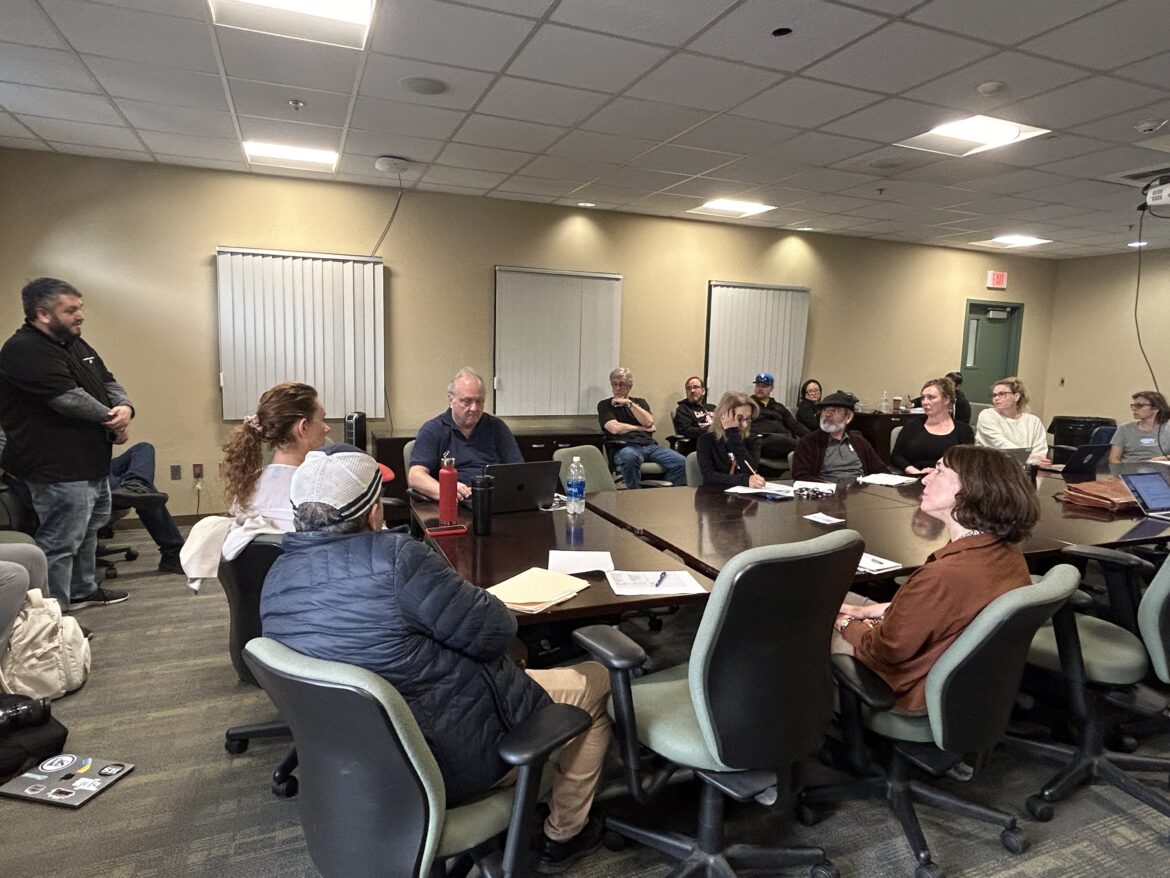Many students at Pierce College take English 103 to satisfy their critical thinking requirement for transfer to a UC or CSU. At Santa Monica College, 20 miles away, the comparable course to meet that requirement is ENGL 2. This incongruence of course names and numbers is common across California.
With the aim of eliminating potential confusion caused by non-uniform course information, Assemblymember Marc Berman, D-Menlo Park, authored AB 1111, which was signed into law in 2021. Due to this law, the state chancellor’s office has required California community colleges to adopt a common course numbering system, including standardized content outlines.
Three years after the law’s passing, its implementation has proved complex.
Some Pierce College faculty, as well as the statewide Academic Senate, have raised concerns that the process of streamlining course information, including names, numbers and content descriptions, could have a negative impact on students trying to transfer and could infringe on professors’ academic freedom.
Pierce Academic Senate Secretary Jennifer Moses is one of the professors who has called for a delay of the implementation of AB 1111. She said she is concerned that AB 1111 might result in some Pierce courses losing their transfer articulation to four-year universities, because when the community colleges standardize their course information, they’ll have to re-submit their courses for transfer approval to each CSU and UC individually. She added that there is no guarantee that these four-year universities will accept the new versions of the courses.
“We all want what is best for students,” Moses said. “If you’re going to make a huge change, avoid unintended harms for students. Why can’t we just slow down and make sure we do this rollout responsibly?”
Moses said she wants to pause AB 1111 implementation until there is more faculty involvement in the common course numbering decision-making, and confirmation from UCs and CSUs that the law won’t adversely impact transferability.
“This is an unprecedented change in how we do things, and it happened so quickly, without broad input from faculty,” Moses said.
Each California community college, including Pierce, has received $913,043 out of the 2024-2025 budget to spend on the implementation of AB 1111, including updating course catalogs and aligning course information.
Another issue raised by faculty is AB 1111’s implications for academic freedom. The state community college chancellor’s office has created templates for the first six courses to be included in the new course numbering, and they include course content outlines that are required to be identical.
Psychology Professor Angela Belden spoke during the public comment portion of the Academic Senate Curriculum Committee meeting on Friday, Nov. 22, to voice her concerns about how this standardization might limit the ability of professors to adapt to the needs of their students by limiting what they teach.
“Academic freedom exists not for faculty, but for the good of our students,” Belden said.
Faculty concerns about AB 1111 were at the forefront of Friday’s Curriculum Committee meeting, which was a special meeting called to approve, for the fall 2025 semester, the six initial courses impacted by the common course numbering law.
The original Curriculum Committee meeting, when these courses were set to be approved, was held on Nov. 15, but no vote was held due to a loss of quorum, according to Curriculum Committee Chair Phyllis Braxton. There were not enough voting members present during the meeting, after some members walked out before the vote was held.
During the special meeting on Friday, the courses were approved unanimously, with the Dec. 2 state deadline to approve them looming. Several members of the Curriculum Committee said they want to delay the implementation of AB 1111, but that if they didn’t approve these courses in the meantime, they might not be allowed to offer them at Pierce next fall, which would hurt students.
The six courses, which include English 101 and Political Science 001, make up approximately 24% of all course sections offered at Pierce, according to Dean of Social Sciences Susan Rhi-Kleinert.
Pierce President Ara Aguiar said the approval vote was a “step in the right direction” to ensure there are no issues for students who want to enroll in these courses.
“I’m very proud to say that the faculty did a great job by approving the six courses, so we will meet the timing that is required by the chancellor’s office,” Aguiar said. “This has to go through a process, and we are in compliance. But we still have an opportunity for further discussion, and for the faculty to express their concerns, and have their concerns addressed.”
Political Science Professor Anthony Gabrielli, who is a member of the Curriculum Committee, said he hopes the implementation of AB 1111 is delayed so that colleges can ensure they have the proper transfer articulation, as well as adequate technology resources to change course information online.
“I think what the state Academic Senate says, that this should be delayed, is probably the best thing we should do, because I think this is just going to be a nightmare,” Gabrielli said.
Barring a potential pause to the implementation of AB 1111, the first six courses will have uniform names, numbers and content outlines across the state beginning with the fall 2025 semester.




